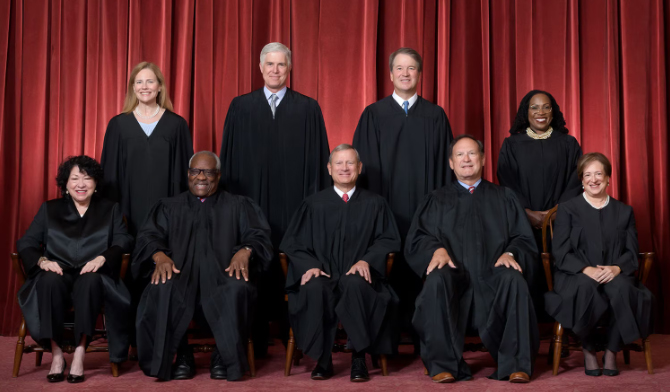
The recent decision by the U.S. Supreme Court to affirm that a web designer is entitled to refuse to create a website for a same-sex couple’s marriage on religious grounds is problematic. Not only were there no actual clients who requested the web designer’s services, no services were denied. The court’s affirmation that religious grounds are sufficient to refuse service, and the expansion of the idea of “public accommodations” to include an online service business all further to confuse the law, not clarify it.
The Supreme Court’s purpose should be to clarify law, not muddy it with unclear decisions based solely upon hypothetical situations. In this case, no actual action was taken between actual parties, and the web designer’s complaint was based upon her fear that she would run afoul of Colorado’s laws about refusing service to a protected class – gender preference – in offering public accommodations. Talk about muddied!
First, let’s look at the issue of public accommodation. Generally, the term has been applied to physical places, “brick and mortar” like hotels, grocery stores or restaurants. The court now seems to have expanded the meaning of public accommodations to include online service businesses without any physical location, such as a web designer’s website. If, in fact, non-physical locations like websites are now subject to the laws governing public accommodations, it raises thorny issues having to do with disclosure and sharing of personal information that normally would not be known or even asked about, such as the race or sexual preference of a potential web client, for instance. Moreover, the act of refusing to offer a service raises issues of compulsory servitude; is every online provider of a service compelled to provide that service to all who request it and are willing to pay the price?
Second, as to the issue of refusing service on religious grounds; in expanding that “right” the court has opened the door to all sorts of discriminatory practices. And, what exactly constitutes religious grounds? Must one prove that one is sincerely religious? Does it apply equally to all religions and religious beliefs? What qualifies a body of thought as a religion? The court’s decision has not clarified but has confused this matter, and I anticipate all sorts of “religious objection” mischief.
Third, is it proper for the court to establish law based on thought rather than action? In this case no action was actually taken, neither performed nor refused. The entire case was based on a hypothetical situation, in other words, on ideas, thoughts and feelings, and then applied as a precedent for future rulings. Granted, the web designer was afraid of running afoul of the law but did not because she chose not to state her grounds for refusing service on her website, thereby claiming infringement of speech. In other words, the Supreme Court has rendered a decision based upon the thoughts and fears of the web designer, not her actions. No actual party was hurt or damaged, nor was any law challenged or broken. Is the court now saying that the mere contemplation or possibility of action warrants a legal remedy? Have we now entered the era of thought crime?
This, like other recent court decisions, is ideological not logical. It’s a dangerous trend that’s likely to produce real injury and damage.